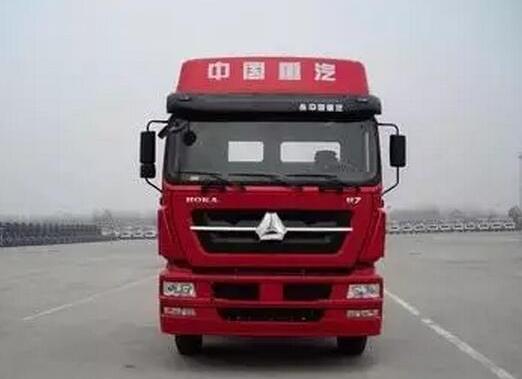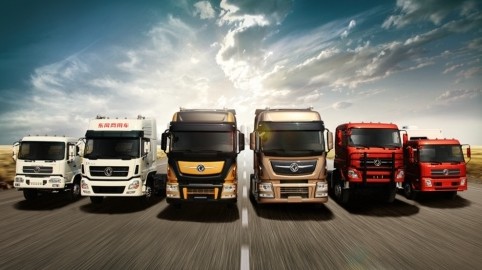Commercial lighting originates from the birth of public commercial spaces, creating lighting systems for commercial use in order to serve the needs of commercial lighting.Application scenarios include entertainment venues, bars, cafes, museums, cinemas, stages, hotels, hotels, conference rooms, exhibitions Led Floodlight,Led Linear Light,Led High Bay,Commercial Led Light Guangzhou ZG Scaffolding.co.Ltd , https://www.zgscaffolding.com
According to media reports, the mayor of Beijing, Cai Qi, stated that in 2017, Beijing will, together with Tianjin and Hebei provinces, take extra-conventional measures to increase efforts to control air pollution. Cai Qi also disclosed several "small goals" this year, which clearly stated that in 2017, Beijing will "grasp the control of heavy-duty diesel vehicles, supply the sixth stage of refined oil, eliminate old motor vehicles, and further promote new energy vehicles." "Strictly control dust pollution and carry out special remediation of slag trucks."
Beijing-Tianjin-Hebei super-conventional pollution control, the impact of regional commercial vehicle market geometry?
Feasibility necessary measures to truck governance is more important <br> <br> according to Ministry of Public Security Traffic Management Bureau statistics, by the end of 2016, Beijing's vehicle population of 548 million. At the same time, Beijing Municipal Traffic Commission statistics show that there are about 70,000 heavy-duty diesel vehicles passing through Beijing and entering Beijing each day, of which 20,000 to 30,000 are delivered to Beijing and the remaining 40,000 to 50,000. Vehicles are transit vehicles. Experts once said that the emission of pollutants from a large truck is 90 to 100 times that of an equivalent standard car. By this conversion, this means that Beijing emits more than 7 million cars each day.
More seriously, the information provided by the Beijing Municipal Bureau of Environmental Protection to the China Automotive News reporter shows that among these heavy-duty diesel vehicles passing through Beijing and passing through Beijing, about 50% are super vehicles. It can be imagined that if the scope is extended to the Beijing-Tianjin-Hebei region, the situation of vehicle exhaust emissions is even more severe. 
Starting from April 1 last year, Beijing, Tianjin, Hebei and other 11 eastern provinces and cities began to implement the five national emission standards, and since January 1 this year, all light-duty gasoline vehicles and heavy-duty diesel engines have been manufactured, imported, sold, and registered. Vehicles (passengers, buses, sanitation, postal use) must comply with the requirements of the National Five Standards. In the interview process, industry sources told reporters that the need for truck management to protect the environment was important, but it also stressed the feasibility of the measures.
Measures indifferent to the dealer always ahead of <br> <br> January 13 this year, the NPC in Beijing, members asked consultation meeting, the Beijing Municipal Environmental Protection Bureau Fang Li said that in order to control air pollution, the relevant departments are currently Study and formulate the work plan for the bypass of heavy diesel vehicles passing through the borders. It is expected that these large trucks will bypass the "large outer ring" during heavy pollution in the future. However, this requires linkages between Beijing, Tianjin and Hebei, and the need to revise the heavy pollution emergency plan. Shortly afterwards, Beijing proposed the above rectification measures.
Mr. Sun, a person in charge of a heavy truck dealership in Hebei, told reporters in a slightly ridiculous manner: “Although ultra-conventional measures are to be taken, measures in the Beijing-Tianjin-Hebei region have always been at the forefront of other parts of the country. For example, the control of heavy-duty diesel vehicles and the elimination of old ones are common in many parts of China, but the Beijing-Tianjin-Hebei region is definitely the most demanding and most demanding, and of course, this is also good for our distributors. After all, knocking out old cars means increasing market demand."
In the area of ​​new energy commercial vehicles, the reporter transferred to contact a new energy vehicle dealer in Beijing Daxing, which mainly operates electric logistics vehicles. “From the perspective of recent sales, the market has increasingly recognized the adoption of new energy logistics vehicles. In particular, Beijing has more restrictions on fuel vehicles, and restrictions on electric vehicles are relatively loose. Regardless of national policies, they have to adopt local policies. In the general direction, we will make the environment better. As distributors, we will also share some policy dividends. Now that the Beijing-Tianjin-Hebei region must vigorously develop new energy vehicles, we are sure to give both hands in favor.†The official said that at the end of the interview He repeatedly asked not to appear personal information.
In respect of the residue trucks, Beijing first implemented a scoring system for “dump trucks†in May 2016. In serious cases, the enterprises will be removed from the list. Since then, there have been few policies concerning the management of slag trucks. Now, once again referring to “special rectification of slag trucks,†Mr. Sun believes: “The rectification of the Beijing area may be mainly aimed at the illegal operation of vehicles. Before that, more than 8,000 slag trucks in Beijing were replaced with smart slag trucks. The situation is unlikely. If it is Hebei, Tianjin, it may bring about a certain degree of transfer demand. But this depends on the situation of the local government. At present, this part of the demand is also very small."
Special markets product development special treatment car prices do not slack <br> <br> since June 1, 2015, implementation of the Beijing "Beijing five" standard has been a year and a half. During this period, domestic commercial vehicle companies stepped up preparations for the "most stringent" emissions regulations. When reporters mentioned that Beijing was doing a supernormal job of rectifying pollution, companies and their distributors did not feel too much pressure. 
“For Beijing and its surrounding markets, we set up the Beijing task force and the Beijing Regional Office and launched related products for the Beijing Five Emission Standard.†Chen Shuimin, general manager assistant of Dongfeng Motor Co., Ltd., told reporters, “Corresponding New products are also advancing in an orderly manner."
Earlier, Cai Dong, general manager of China Heavy-Duty Truck Group Co., Ltd. stated at the 2017 business annual meeting: “The product import progress must be conceded to the quality of the product, and we cannot rush to promote it at the expense of quality.†This has also become China National Heavy Duty Truck's market in Beijing. One of the goals that we are sticking to is to respond to changes in the market and continuously improve the level of technological research and development as a constant goal to cope with the emerging situation in the market at any time.
According to Mei Lingxi, Beijing commercial manager of Dongfeng Motor Co., Ltd., facing the harsh policy that Beijing may issue at any time, "Since last June, all vehicles that meet our five emission standards have been put into the Beijing area. Including 6 to 12 meters of trucks equipped with various types of engines.†According to him, the supply of Beijing No. 6 oil does not require additional technical upgrading of the product. On the contrary, the increase in oil standards will increase the service life of the engine. The sales of the car will not have much impact.
The Beijing-Tianjin-Hebei regional market is rather special, especially in Beijing. Now we have also launched a series of measures for the region. The region of Beijing is also our growth area. The sales volume at the beginning of this year was not bad. Jiang Jianhua, deputy director of the general manager's office of SAIC Iveco Hongyan Commercial Vehicle Co., Ltd., said in an interview.
When reporters contacted other domestic commercial vehicle companies, they also stated that they have marketing strategies and products for the Beijing-Tianjin-Hebei region and are conducting technical research and development. However, when referring to the specific strategies for the market, they were revealed inconveniently and declined the interview.
The influence of ultra-conventional pollution control in Beijing, Tianjin and Hebei on the regional commercial vehicle market?